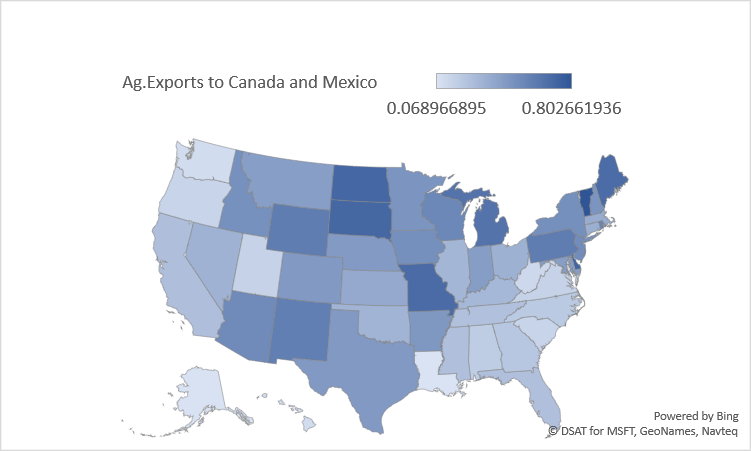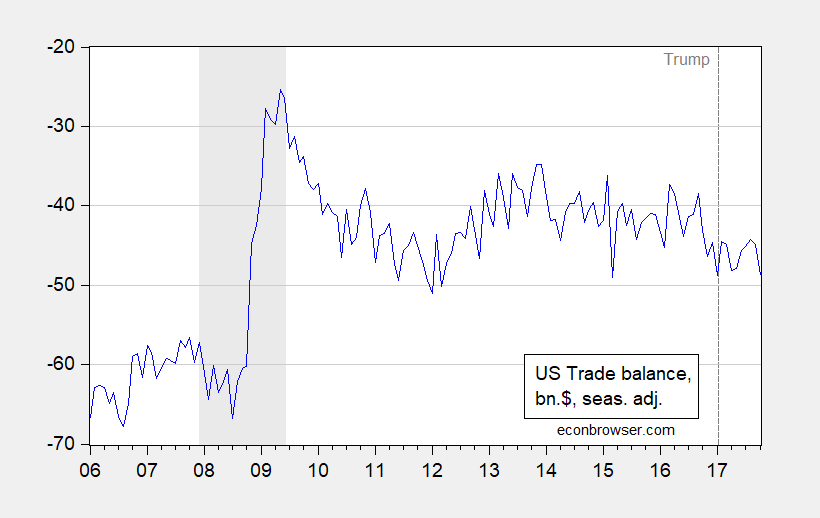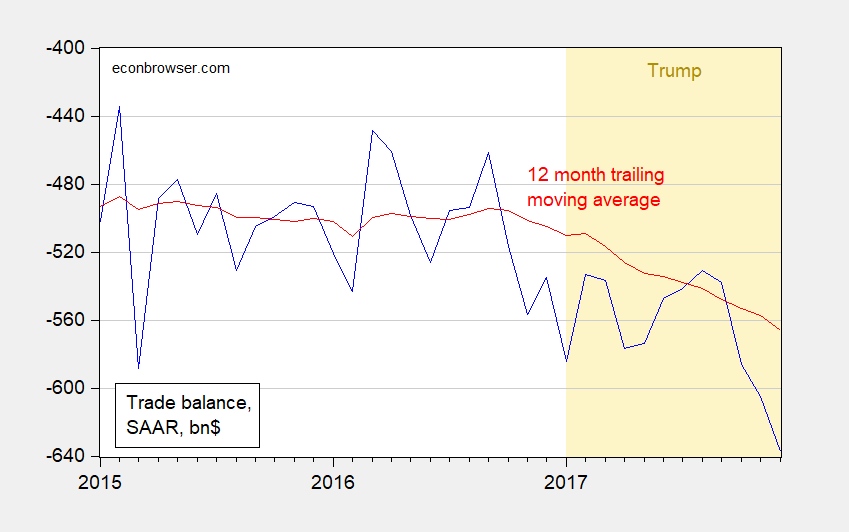With a national security fig leaf?
Category Archives: Trade Policy
Trump’s Trade Deficit
EconoFact: “Threats to U.S. Agriculture from U.S. Trade Policies”
Or, Does Mr. Trump feel lucky?
From EconoFact:
The agriculture sector in the United States depends upon exports for its vitality. Sales of U.S. agricultural products abroad are responsible for 20 percent of U.S. farm income, supporting more than one million American jobs on and off the farm, according to the U.S. Department of Agriculture. The three biggest buyers of American agricultural products are China, Canada, and Mexico. Yet trade with these three countries faces heightened uncertainty. The Trump Administration initiated a process of renegotiating the North American Free Trade Agreement (NAFTA) with Canada and Mexico, which includes the option of exiting the deal altogether. In addition, the United States has started a series of investigations of unfair practices leveled against China, some of which have already resulted in the imposition of new tariffs. These trade policy initiatives threaten agricultural exports both because of the potential increase of tariffs on exports to Canada and Mexico that would result from a withdrawal from NAFTA as well as the very real threat of retaliation in response to other proposed policies.

Figure 1: Share of total agricultural exports going to Mexico and Canada, by state. Agricultural exports defined as NAICS 111+112+311 (crops, livestock, and processed food). Source: Census via ITA and author’s calculations.
The entire article is here. More on agricultural sector fortunes here.
Farm Sector Prices and Income under Mr. Trump
So far, so-so.
World Economic Outlook Update: Upwardly Revised Growth, Rising Risks?
The IMF released an update to WEO today:
Continue reading
Making Mexico Pay for the Wall (Redux)
So we’re back to this again? From CNN:
“They can pay for it indirectly through NAFTA,” Trump said Thursday in an interview with The Wall Street Journal. “We make a good deal on NAFTA, and, say, ‘I’m going to take a small percentage of that money and it’s going toward the wall.’ Guess what? Mexico’s paying.”
“We have trade deficits with everybody”
Thus spake the Mr. Trump, on a day that the October trade figures were released, indicating a deteriorating balance.

Figure 1: US trade balance, in billions $, seasonally adjusted (blue). NBER defined recession dates shaded gray. Source: BEA/Census via FRED, and NBER.
Continue reading
Guest Contribution: “The Long-term Job Decline in US Manufacturing”
Today, we present a guest post written by Jeffrey Frankel, Harpel Professor at Harvard’s Kennedy School of Government, and formerly a member of the White House Council of Economic Advisers.
The Association between China-based Job Displacement and Drug Overdose Deaths
A recent White House internal memo has suggested a causal relationship between the decline in manufacturing jobs and a host of social ills, including the opioid epidemic. Here is a graphical/geographic comparison of two variables that are related to these factors.
US Withdrawal from KORUS Free Trade Agreement?
From Reuters:
President Donald Trump on Saturday said he would discuss the fate of a five-year-old U.S.-South Korean free trade deal with his advisers next week, in a move that could see him pull out of the accord with a key American ally at a time of heightened tensions on the Korean peninsula.
